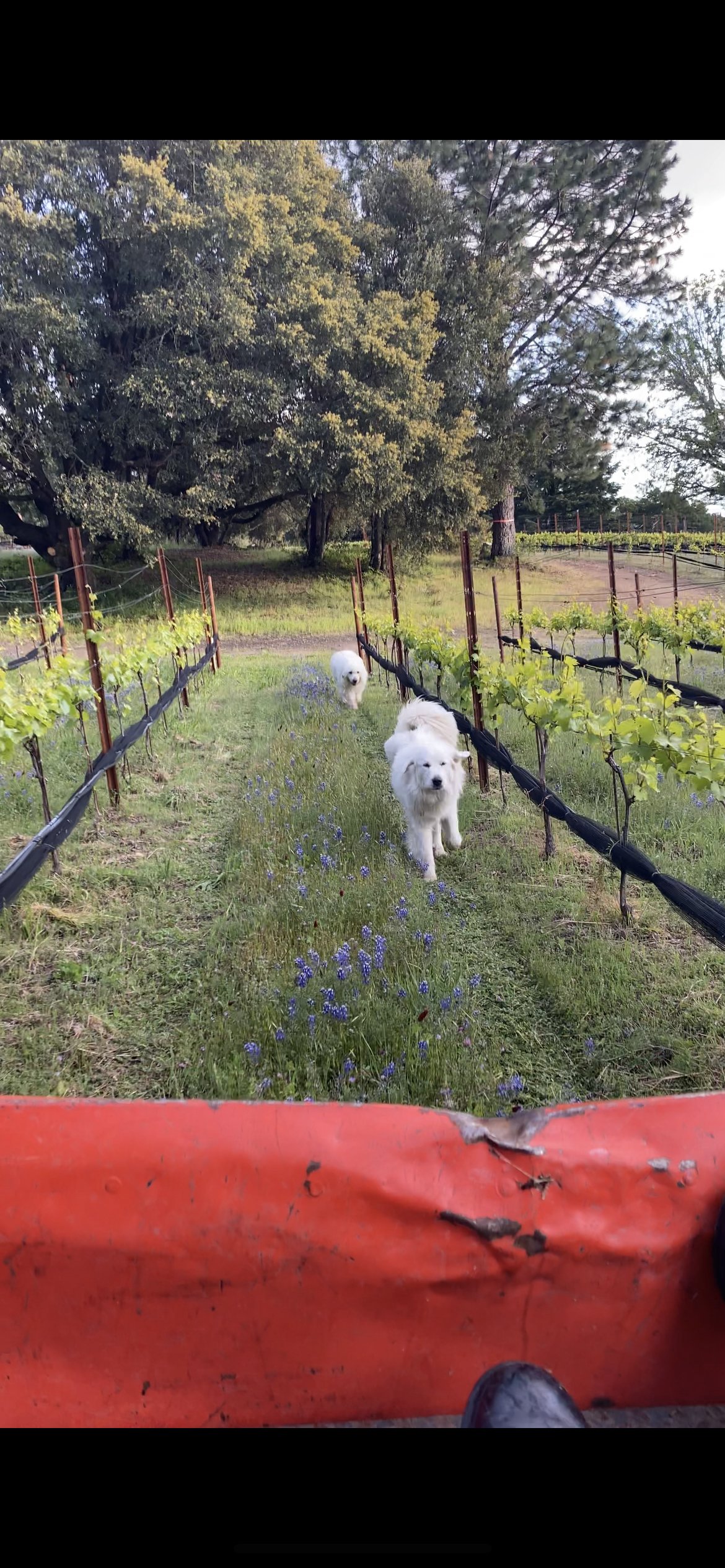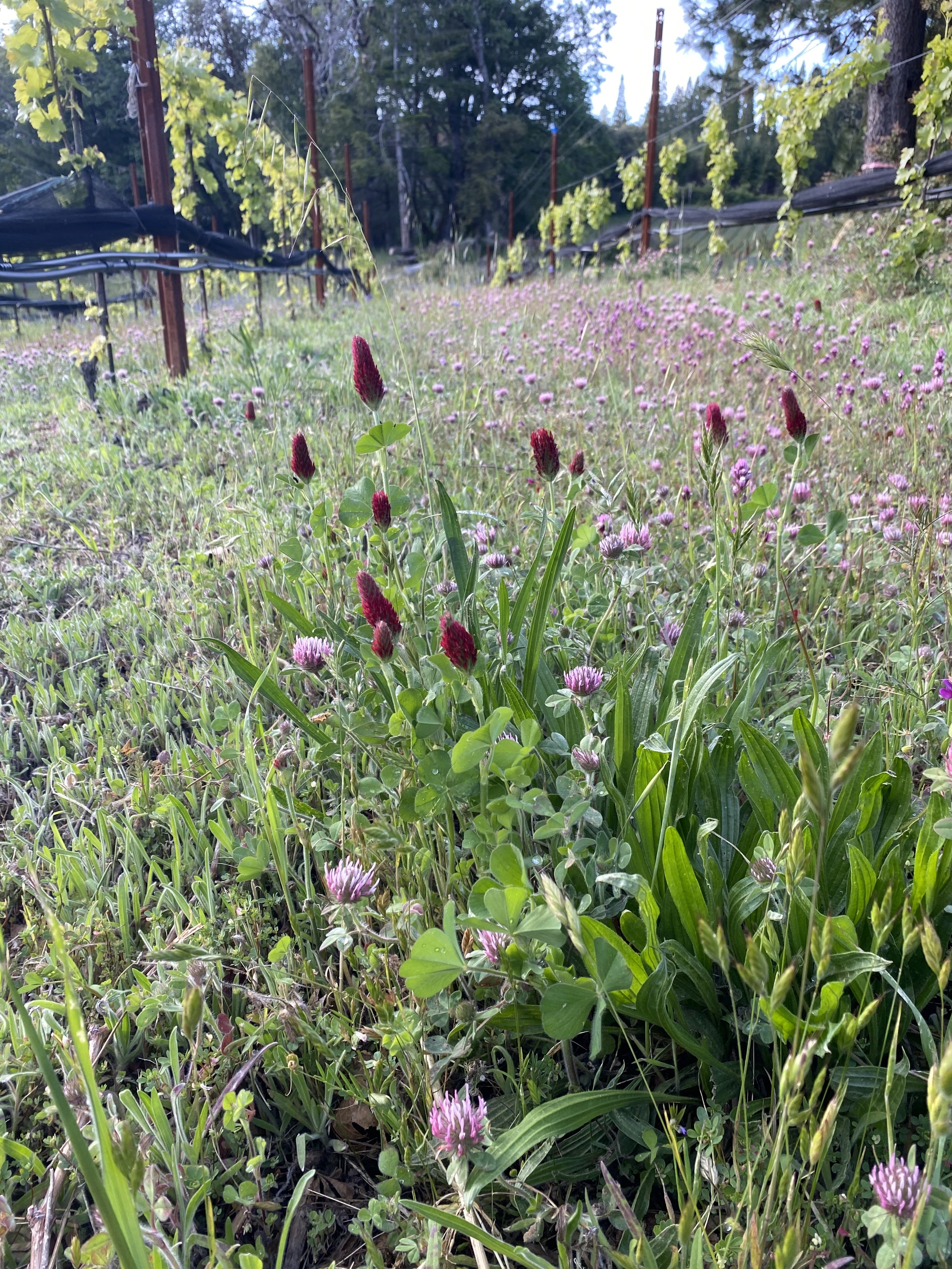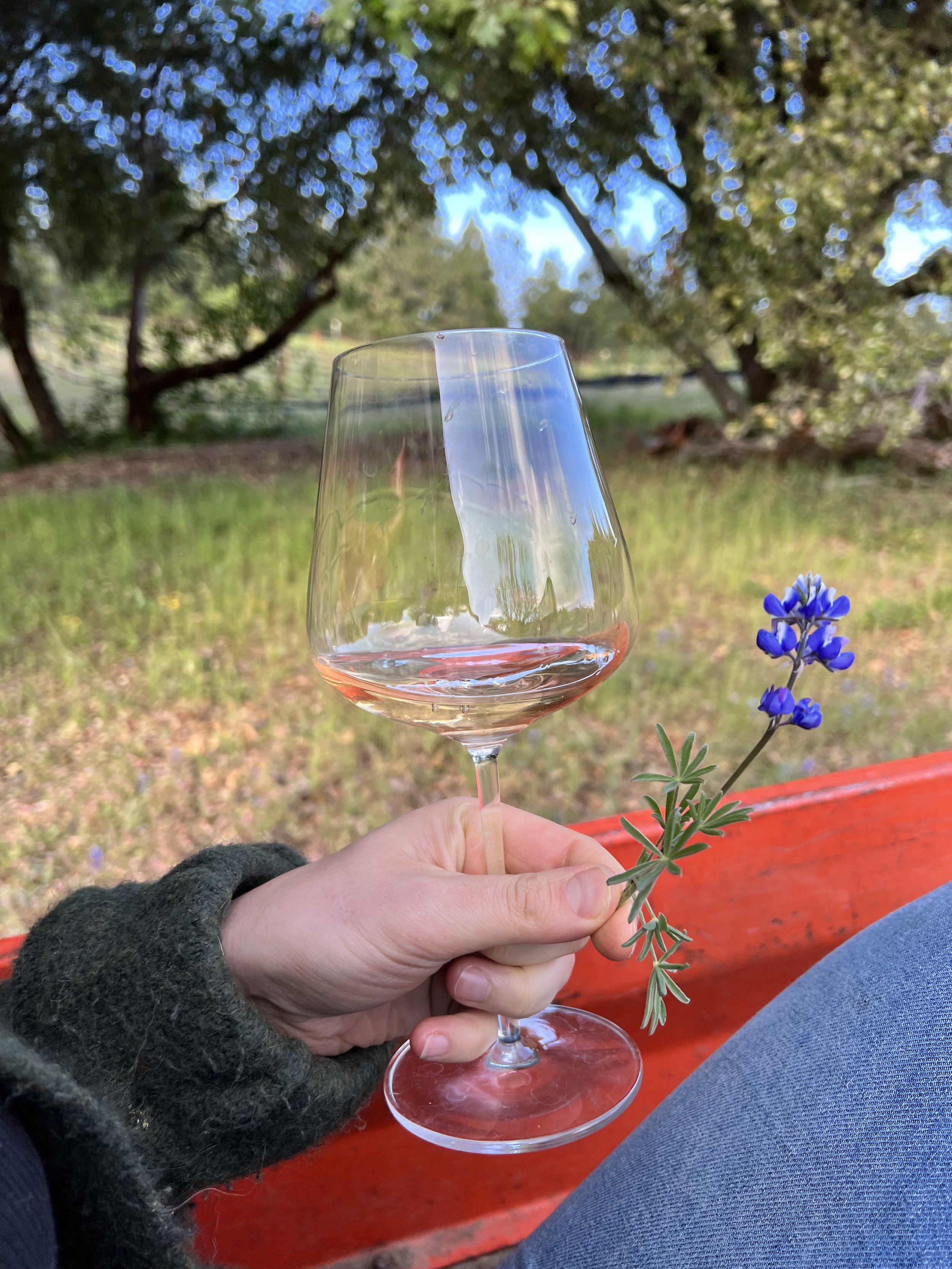About our vineyard partners
-
We partner with local farmers.
Treating this planet with respect is our utmost priority. I choose to work with farmers who prioritize organic and/or regenerative agriculture practices. Only 2.4% of vineyards in California are certified organic, so it’s not an easy feat. Though you can practice organic farming without being certified, that percentage is indicative of the uphill battle we have as an industry to focus on organic agriculture.
-
We practice minimal intervention.
I believe that every fermentation should be unique. When you work with quality ingredients, they do most of the work for you. I am committed to allowing the wines to express their quirks and merely guiding the yeast and juice along on their journey to becoming wine. I do everything I can to avoid additives other than a small amount of sulphur.
-
We lift up our community.
Community is life giving. There is no individual without community. I was raised with an acute awareness of the benefits of my community and I continue to perpetuate that ethos in my daily life. Community is also the best part about the wine industry. In my decade of working with wine, I’ve learned that we’re all just here to support each other and that is so beautiful.
In 2023, I decided to donate 2% of my profits to my friends at ABV Ferments. We found each other in 2020 and I am constantly inspired by their commitment to serve our community and lift up BIPOC voices.
Ascona Vineyard
The Ascona Vineyard is situated at 2,500 feet elevation in the Santa Cruz Mountains. It is farmed organically by my friend Ken Swegles (who also lives on the property with his lovely wife Abbey). The fruit is pristine which makes my job really easy. It offers exactly what I want — a long slow fermentation with just the right amount of acidity. The soil is comprised of vaqueros sandstone with some clay.






Mee Vineyard
The Mee Vineyard is situated at 712 feet elevation nestled in the valley east of Ukiah. This part of Mendocino County, known as the Tamalge bench, has a long history of agriculture on its hillside benches and flatlands. The vineyard is farmed organically. The soil is mostly gravelly loam.



